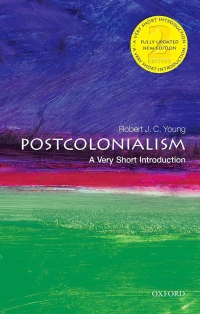
Postcolonialism: A Very Short Introduction PDF
Preview Postcolonialism: A Very Short Introduction
Cover page Page: i Halftitle page Page: i Series page Page: ii Title page Page: x Copyright page Page: xii Dedication page Page: xiii Contents Page: xv Acknowledgements Page: xvii Acknowledgements to the second edition Page: xvii List of illustrations Page: xix Introduction: montage Page: 1 1. Subaltern knowledges Page: 11 You find yourself a refugee Page: 12 Different kinds of knowledge Page: 17 Knowledge, politics, and power Page: 20 Subalternity and the subaltern woman Page: 23 Languages Page: 25 Literatures Page: 28 2. Colonialisms, decolonization, decoloniality Page: 31 Decoloniality Page: 35 3. Slavery, race, caste Page: 40 Slavery, race, and racism Page: 41 Caste Page: 45 4. History and power, from below and above Page: 48 Bombing Iraq—since 1920 Page: 49 ‘The right to bomb’: Baghdad, 21 January 2003 Page: 51 5. Nomads, nation-states, borders Page: 60 Nomads Page: 62 Nation-states Page: 64 Unsettled states: nations and their borders Page: 66 The wall Page: 73 Touch of evil Page: 74 6. Hybridity Page: 76 Raï and Islamic social space Page: 81 7. The ambivalence of the veil Page: 90 8. Gender, queering, and feminism in a postcolonial context Page: 102 Women’s movements after independence Page: 108 What makes postcolonial feminism ‘postcolonial’? Page: 110 What makes a politics postcolonial? Page: 112 9. Globalization from a postcolonial perspective Page: 117 Che reads The Wretched of the Earth Page: 118 Globalization Page: 124 ‘Good food—Nestlé—Good life’ Page: 125 Sharing resources in an unequal world Page: 127 10. Ecology and indigeneity Page: 128 11. Translation Page: 139 Translating—between cultures Page: 140 Empowering Fanon Page: 144 References Page: 151 Further reading Page: 158 Index Page: 167 Geopolitics Page: 175 Critical Theory Page: 176 Economics Page: 177 Globalization Page: 178 International Migration Page: 179 International Relations Page: 180
Description: